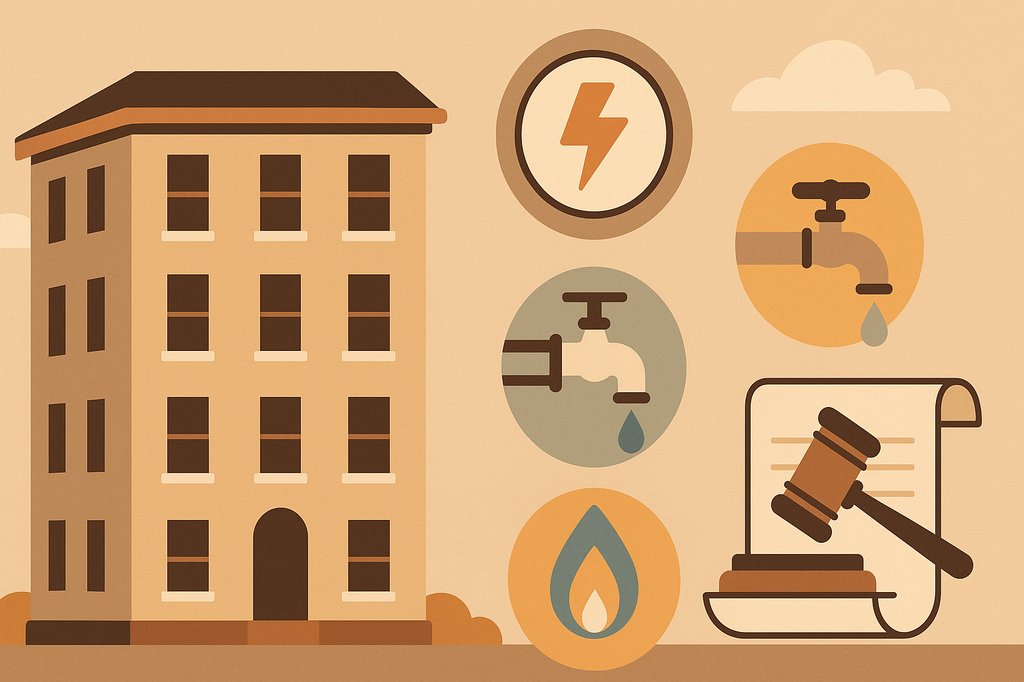Ground Leased Property Can Offer Better Tax Efficiency
Occasionally, I’ll see a property for sale that is subject to a ground lease. Since these assets are different than ones purchased the “traditional” way, I think that an article exploring these differences will be interesting.
What is a Ground Leased Property? Fee-Simple vs. Leased-Fee Interests
If you own a traditional single-family home in California, you most likely own the Fee Simple title to your property. You own the land and improvements on the property in perpetuity: forever. A ground leased property has two components: the ground itself, and the Leased Fee interest. A Fee Simple owner can lease his land to a tenant, who will then hold a Leased Fee interest. These leases are usually very long term – 100 years is not uncommon. The tenant can then build and operate property on that land through the term of his loan – provided that the rent payments are made in a timely manner. When the lease expires, the landowner can either renew the lease, or take back the property and all the improvements on it.
If a Leased Fee property has a building on it, the Lessor (tenant) owns that. He can also sell the lease to another owner, who then takes over the improvements, income and lease payments. If the lease expires, however, the landowner will regain possession of the land – this includes ownership of any improvements.
Long Terms are Crucial with Ground Leases
Let’s look at an example and say we have a Bank of America branch that has a Leased-Fee title for sale. If this ground lease has a long 90-year term, then the new owner will enjoy the benefits of that property (income from rents) for the next 90 years. Due to changes in land use over time, it is unlikely that bank building will remain there for the entire term: The Leased Fee owner is free to demolish that bank building and replace it with apartments, a car dealership or a fast food restaurant – anything he can get the property zoned for.
If, on the other hand, that ground lease only has 10 years remaining with no renewal options; a buyer is purchasing the same rights as above, but only for 10 years. In 2034, the landowner can reclaim his land and will now own any improvements on it. Such a leased fee interest would be much cheaper than the 100-year example above, to reflect the fact that only 10 years of income would be available.
A Lesson I Learned About Ground Leased Property
25 years ago, I worked for a real estate investment company that tried to acquire an office building in Hawaii. The owner of the company fell in love with this property and was desperate to get a deal done. (Perhaps he wanted an excuse to travel to Hawaii regularly on business.) This particular property only had 15 years left on the ground lease. First, we approached the landowner (the lessor) and inquired about extending this lease. The landowner was very candid – he would not extend the lease and intended on taking possession of the property in 15 years. So we went back to the seller for a steep price discount – we may still be interested in buying the property, but the price will need to reflect the only 15 years of benefits we’ll get. The seller was open to work with us, but we learned that lenders would not lend money on a property with less than 30 years left on the ground lease. We explored buying it all-cash as part of a 1031 Exchange, but struck out there too. Upon researching the IRS’ 1031 Exchange code, we found quickly that the government does consider Leased-Fee interests to be real property for 1031 Exchange purposes – but only if the remaining ground lease term is greater than 30 years.
Where Ground Leased Properties are Common
Ground leases are often seen where development is dense and land is scarce. Trump Plaza and the Flatiron Building in Manhattan, for instance, are on leased land. With a ground lease, the landowner – who may lack the financial resources to build a $200 million property – can still earn income from their land. The lessor, on the other hand, gets access to a coveted lot and can earn great tax benefits during their ownership period as I’ll discuss below.
Tax Advantages of a Ground Lease
Depreciation is a powerful tax benefit that we investment real estate owners receive. Although our property is often not declining in value we can, for tax purposes, treat it like it is. For residential properties, we can write off as a depreciation expense the improvement value of our property over 27.5 years. (For other commercial properties, it is 39 years.) Because land is not depreciable, we need to estimate how much of our property’s value comes from the improvements on it – 80% is a good example to use. Therefore, a $2 million apartment purchase will yield an annual depreciation deduction of ($2 million x 80% / 27.5) $58,181. That means $58,181 of our annual income will be completely tax deferred (potentially forever.)
In a ground leased property, however, we don’t own the land itself – the only thing we own is the improvements. Therefore, our purchase price can be fully tax deductible. In the above example, our investor could depreciate the full purchase price of his property – for $72,727 of annual tax deferred income: 25% more tax benefits!
This month, we reviewed some of the benefits and drawbacks of ground-leased property. When I see one for sale, I don’t immediately skip over it – I’ll take a closer look to see if the numbers could make sense for me. If you have any questions about them, please call my office at (877) 313-1868.
By Christopher Miller, MBA
Christopher Miller is a Managing Director with Specialized Wealth Management and specializes in tax-advantaged investments including 1031 replacement properties. Chris’ real estate experience includes work in commercial appraisal, in institutional acquisitions for a national real estate syndicator and as an advisor helping clients through over five hundred twenty-five 1031 Exchanges. Chris has been featured as an expert in several industry publications and on television and earned an undergraduate business degree and an MBA emphasizing Real Estate Finance from the University of Southern California. Chris began his real estate career in 1998. Call him toll-free at (877) 313 – 1868.
Securities offered through Emerson Equity LLC, member FINRA/SIPC. Emerson Equity LLC and Specialized Wealth Management are not affiliated. All investing involves risk. Always discuss potential investments with your tax and/or investment professional prior to investing.








